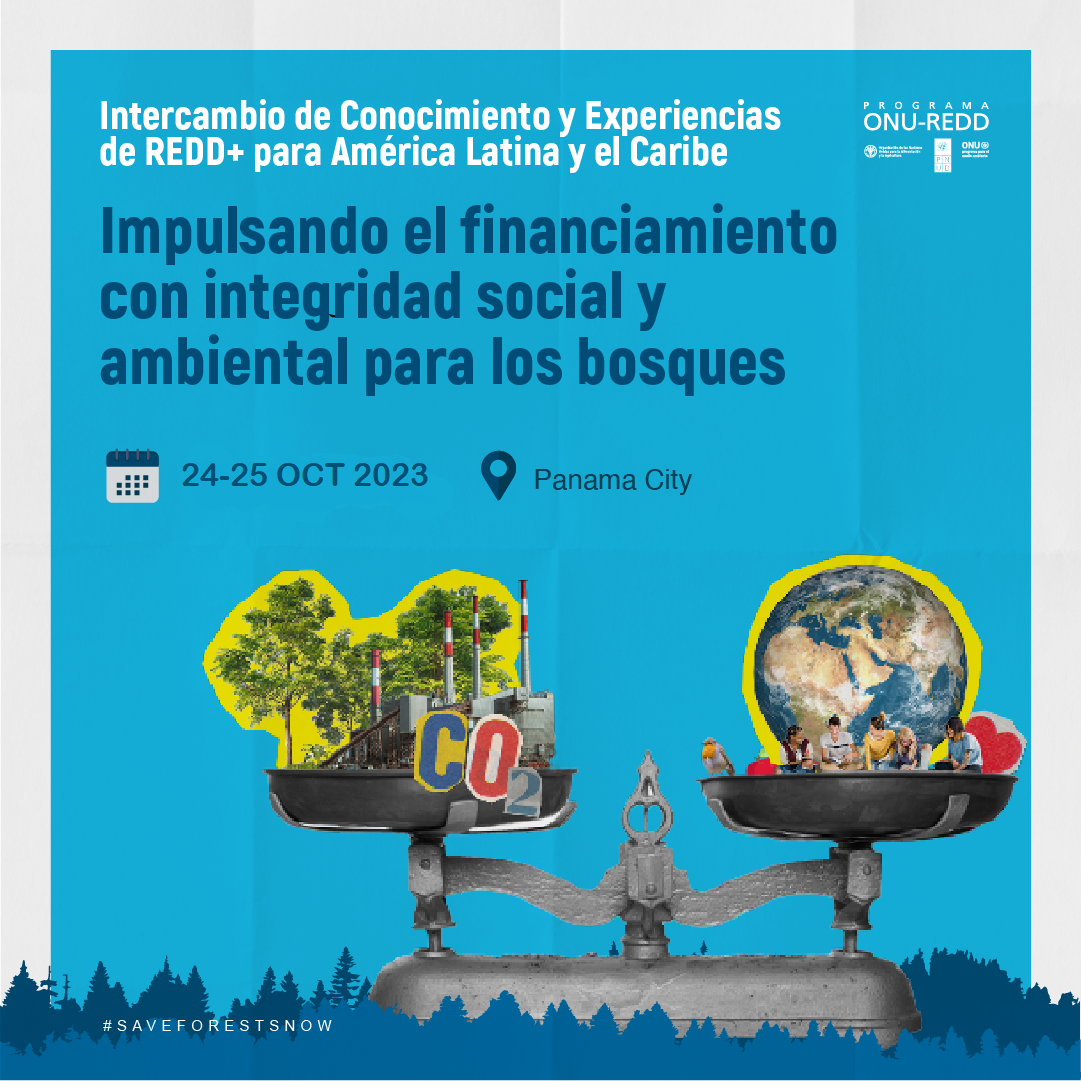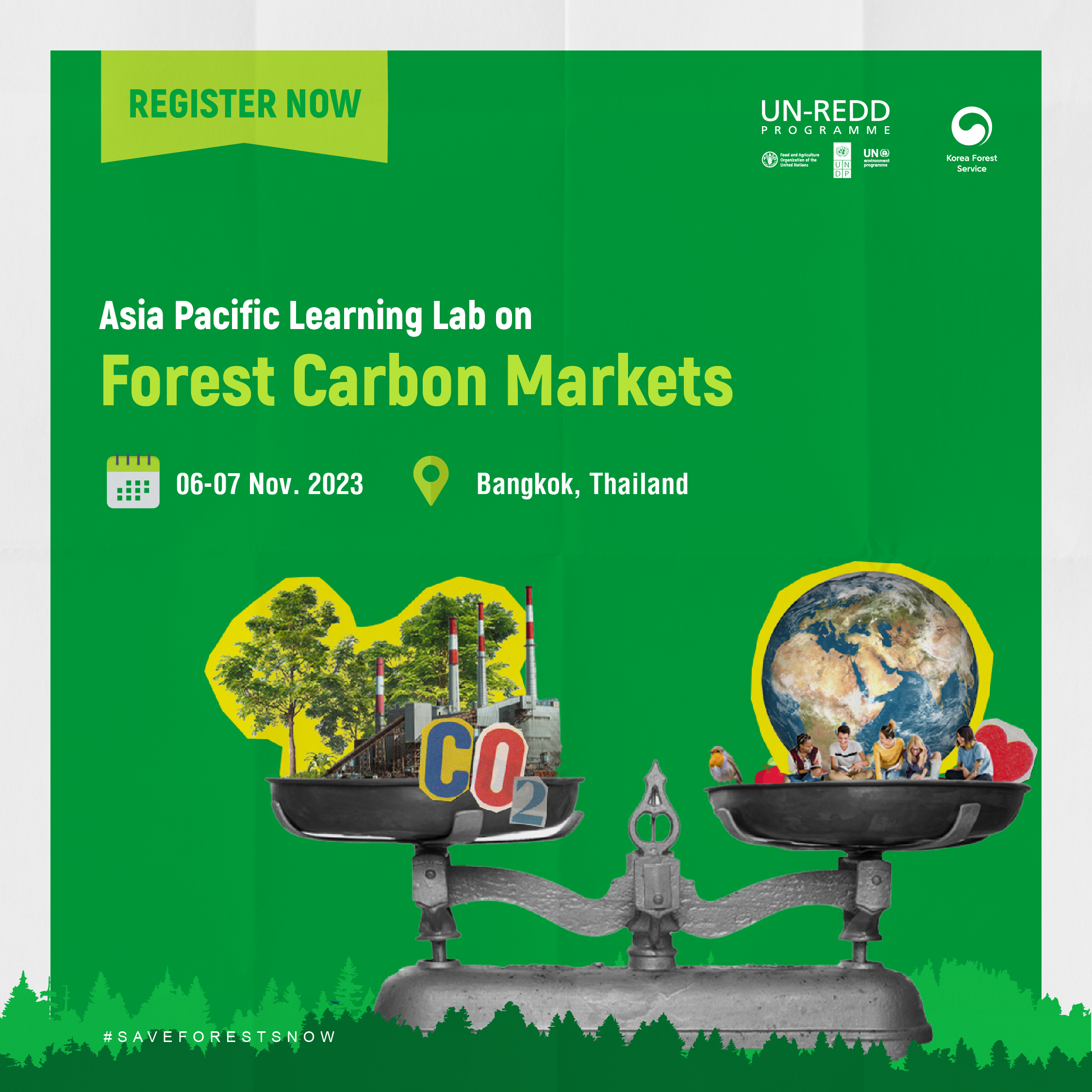This meeting, coordinated by the UN-REDD Programme, will be held in Panama City on 24-25 October 2023 on financing for forests and climate change with environmental and social integrity and will have spaces focused on nesting and safeguards.
The event offers a unique opportunity for the exchange of knowledge, experiences, collaboration and dynamic debates between experts and practitioners working on protection, reforestation and sustainable use of forests.
Context:
In recent years, several countries in the Latin America and the Caribbean (LAC) region, with the support of the UN-REDD Programme and other initiatives, have concluded the REDD+ readiness phase, so that several countries are currently planning and implementing their REDD+ strategies or action plans, under various approaches, according to different funding sources and at different scales, from individual projects to programmes at subnational and national scales, all of these with their own requirements and characteristics according to donor policies, standards and other applicable rules.
In this process, countries are beginning to face new challenges to ensure the environmental and social integrity of REDD+, considering the following elements, among others:
- Avoid double counting, through the use of comprehensive carbon accounting systems, aligned baselines and reporting, and complete registries;
- Implement equitable benefit-sharing systems and schemes;
- Clarify legal aspects related to carbon rights, land tenure and policy frameworks, among others
- Apply safeguards with approaches and systems at different scales, appropriate stakeholder participation, with recognition of the centrality and key role of Indigenous Peoples and local communities.
These considerations also arise in response to the various demands coming from the demand side of forest carbon, market trends, financial institutions and donor country conditions, among other factors. If countries fail to address these challenges satisfactorily, the continuity of their financial flows to fund REDD+ outcomes could be at risk.
To address these challenges comprehensively, nesting schemes are being designed and implemented, understood as a strategic approach to integrating the different levels of REDD+ implementation (national, subnational, programmes and projects), together with the various financing schemes (results-based payments, carbon markets or other), and facilitating alignment and coherence between the different mechanisms and systems for carbon accounting (registries, reference levels, etc.) and safeguards of the different levels.
Thus, while such a nesting scheme poses significant challenges for states (national and sub-national), once implemented it would allow the entire jurisdictional REDD+ scheme to have an adequate ecosystem to ensure environmental and social integrity of REDD+ in its different aspects and at different levels, thus resulting in better opportunities to access limited climate finance.
This workshop proposes to assess the current situation in the countries of the region and the international context to establish how to achieve the enabling conditions needed to develop adequate and comprehensive integrated nesting schemes to ensure environmental and social integrity, and to contribute to the scalability and sustainability of REDD+ finance in the different jurisdictions.
During the workshop there will be expert presentations on financing, environmental and social integrity, nesting, safeguards and other related topics, and there will also be different working groups so that each participant can play an active role, analyse particular cases, appropriate tools and establish relationships with colleagues in the region.
For further information please contact sofia.arocha@un.org Sofia Arocha, Communications and Knowledge Manager for LAC, UNEP, UN-REDD Programme


